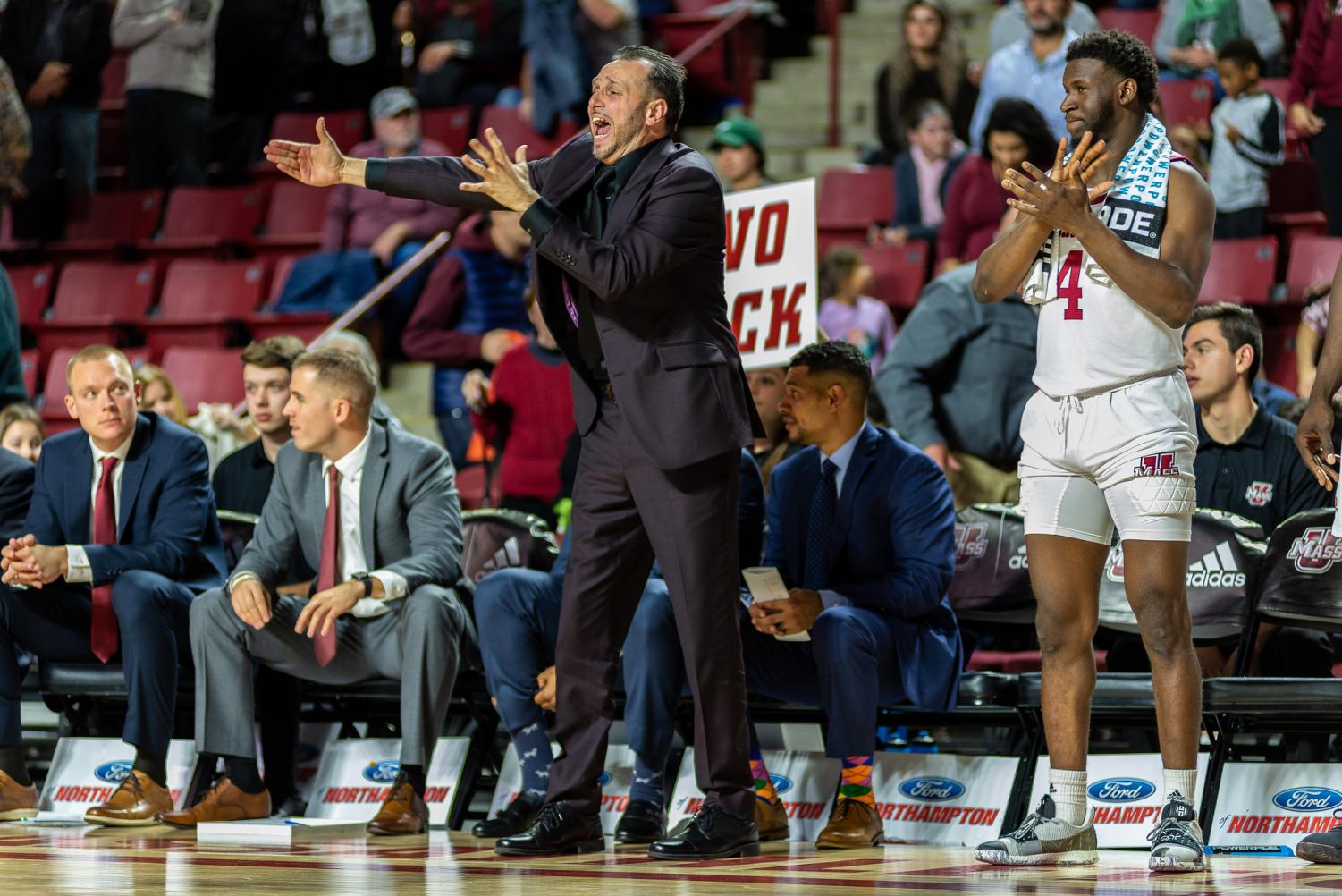Tony Bergeron bringing fire and energy to UMass basketball
Springfield native returns home to live out his childhood dream
November 13, 2019
For Tony Bergeron, basketball has been his whole life. But even his family never thought that one day he’d be able to live off what he loves most.
Growing up in Springfield in a big Italian family, Bergeron was the oldest of eight kids, and money wasn’t always flowing in the household. And one thing was certain: the money that did come in wasn’t going to be used for UMass basketball tickets.
“I loved basketball at any level, high school and college for sure,” Bergeron said. “We would’ve loved to have gone to a lot of [UMass] games, but Springfield where I grew up, we didn’t have a lot of money. So, one, we didn’t have a ride to the game, and two, we certainly didn’t have money to get tickets. So we didn’t attend a lot of games.”
Although his family may have doubted his ability to be able to coach and make a living off that, the dream for Bergeron to one day coach at UMass never faded away.
Growing up just 25 miles south of Amherst, Bergeron was an avid sports fan and loved UMass, typical of any kid who loved basketball in Western Mass. Growing up he followed basketball and baseball, and even continued to coach both sports up until he was in college. Amongst his siblings, it was clear that Bergeron was the most passionate when it came to basketball.
“Everybody liked it, I was more the basketball junkie,” Bergeron said. “My brothers and sisters played in high school only, they weren’t super serious about, and certainly didn’t want to make a career out of it like I did.
“Neither of [my parents] really thought that basketball was going to ever pave a way for me to have a full-time job or employment,” Bergeron said. “I just loved it. I loved coaching, I loved basketball growing up. I played baseball as well in high school and in college, but I just had to focus on one so after about four to five years of coaching baseball, I dove full-time into basketball.”
Laughing over the phone, Bergeron recalled his first experience of coaching.
“First and foremost I coached my first game at 14 years old. It was one of those things where I was playing basketball, and I was at the park getting ready for my game, and the nine-and-under game prior, their coach didn’t show up,” said Bergeron. “The guy who coached my team was like ‘Hey, why don’t you coach them,’ so I was like, ‘All right,’ and it was pretty cool. I enjoyed it because that was probably when I got my first taste of coaching.”
Bergeron started his career off as an assistant at The King’s College in New York, where he graduated with a bachelor’s degree in physical education and also played basketball and baseball. He got his first official taste of coaching as an assistant coach there for a year, and then later left for Maria Regina High School, an all-girls school in Westchester County in New York.
He coached there for a year, and then went onto to Archbishop Stepinac in White Plains, New York and was a lower level coach there for three years. His first varsity coaching job was at the MacDuffie school in Springfield, which brought him back home.
Back at home, Bergeron found his first tangible success, leading the MacDuffie basketball team to a 2001 Class E championship, his first as a coach.
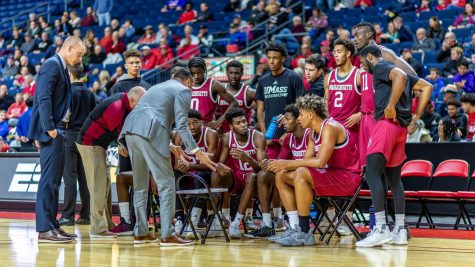
It was during his time at the MacDuffie school when Bergeron found himself working for Five Star, a basketball camp that was founded by Will Klein and Howard Garfinkel in 1966 — the camp saw players like LeBron James, Chris Paul, Kevin Durant, Kyrie Irving and many more come through to improve their game.
Leigh Klein, the former CEO of Five Star, saw Bergeron’s growth as a coach on and off the court, working with him for nearly two decades.
“I remember [Bergeron] came into the office one day and he was interested in doing more, and we ended up having a spot for him in the office,” Klein said. “He started out first as a camp coach, then he was recruiting coordinator, and then he was program director, and really in many ways became the face of our instruction.
“Prior to him, the face of instruction was Rick Pitino, [John] Calipari; and then in our stretch from 2010 and on was Tony Bergeron.”
Five-Star is an exclusive and expensive camp. Instruction for the camp was the most important aspect and the most successful, and Bergeron was a huge contributor to the curriculum of the program and played a fundamental role in the development of the instruction over those years.
His mindset on the court was to always get more offensive possessions than his opponent. It was something that he developed and eventually instilled into the basketball program, and from that point forward, it became an identity for all his programs.
He stood out from many coaches because of his tenacity and will to be the best. He was loud and boisterous, and made sure the players he was coaching were exceeding their potential. He brought out the fire in kids and gave a much-needed burst of energy to all the places he coached.
“He’s got great rapport with his players, partly because he will challenge them and hold them accountable and he’s going to keep it ‘100,’” Klein said. “He is going to keep it real with that. The second big quality is he is looking to develop you as a player. He’s really good at player development, and teaching on the court.”
Five Star grew with Bergeron and was successful under his instruction because he implemented a strict curriculum that the kids followed and enjoyed. He always put the kids first, and as a result, he’d get into arguments and disagreements with coaches because they didn’t always share the same view.
“Tony always got along great with the players,” Klein said. “He didn’t necessarily always get along with all the staff because if you were a staff member who wasn’t good or fair to the campers, he would challenge you. He was always very much about the kids first. If you were an established coach and you came to Five Star and you thought that it was about you and not the kids, then you were in for a rude awakening.
“There were several successful coaches that Tony ran out of camp because they were confused; they thought it was them.”
Bergeron used his Five Star experience everywhere he went — he was like a sponge, constantly soaking up information and knowledge about the game to be a better coach for his players. The desire and passion to learn more about the game comes from that chip on his shoulder.
“He always had a chip or a challenge, and always felt like it was him against the world and something to prove,” Klein said. “That’s always been a driving force for him and he’s flourished with players that have identified with that as well. The kid that goes to UMass that was disappointed not to be recruited by Duke or Kentucky, that is the perfect fit, because what Tony is going to do is get motivated to implement what those kids need, so that one day they will beat a Duke or Kentucky.”
Bergeron loved blue-collar guys with a chip on their shoulder, guys with a work ethic that would willingly put themselves to the test. He’s a no-nonsense type of coach; if you work hard, he’ll give you the tools to succeed.
His success as a coach at MacDuffie along with his experience at Five Star helped Bergeron find his identity as a coach. He learned the fundamentals and tools needed to successfully get his players ready for the next level.
“If you put all [my former players] that went on to play college ball into a room,” Bergeron said, “they’d probably tell you, number one, Coach B doesn’t take any nonsense; number two, you are going to be academically inclined; three, you’re going to have high character; and four, you’re going to play in practice harder than you ever had in your life.”
Bergeron developed a reputation for his ability to turn around a program overnight. He maximized the talent that he had and grew with the players that he had. There was no looking back, solely focused on the future of what he was doing and determined to be successful.
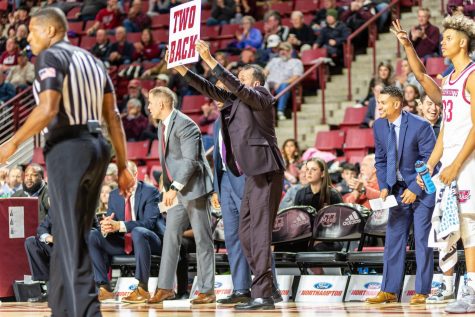
Bergeron had a coaching spell at American Christian Academy, where he coached Tyreke Evans, a future star at Memphis before a decade-long career in the NBA including a Rookie of the Year award in 2010.
“I had a great experience there,” Bergeron said. “I loved coaching Tyreke, and ended up being able to add a ton of things to his game. He was already a phenom, I certainly didn’t create that, but his junior year we had nine Division I players and his senior year we had 13 Division I players. It was a terrific couple of years there, and I am still pretty tight with his family.”
After the funding ran out at American Christian, Bergeron came back home to coach at East Longmeadow High School. He didn’t want to leave American Christian, but after finding out that his father was sick, Bergeron wanted to be closer to home.
After a Western Massachusetts title in 2010, East Longmeadow’s first and only, Bergeron started building the program at Commonwealth Academy in Springfield. The success attained at both schools led to his hiring as the new prep school basketball coach of Woodstock Academy. It was 2017, the first time that Woodstock Academy had a postgrad team. With his resume and background, Bergeron was the perfect candidate.
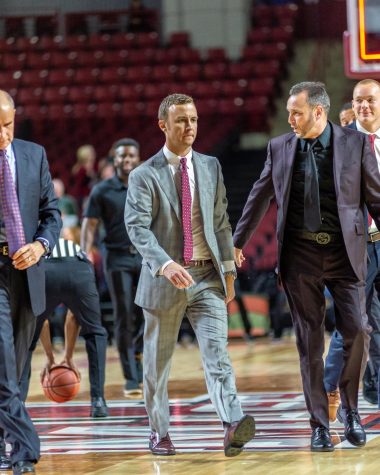
Woodstock Athletic Director Sean Saucier was hired at the same time as Bergeron, first as an assistant athletic director at Woodstock and then eventually as the head football coach.
Saucier and Bergeron first talked on the phone for about 45 minutes, discussing the ins and outs of prep basketball and making sure the program would be top-notch. For Woodstock, starting its first prep team, someone like Bergeron with a long record of building prep programs was perfect: he knew how to start the program, and had the connections to bring the team to the next level.
“He’s got a confidence about him that I think is attractive to people,” Saucier said. “He is unapologetic for his success, and he is just a fantastic recruiter.”
It’s a theme that has been common amongst all of his former colleagues and players; they love the passion and energy that Bergeron brings. His style of coaching helped integrate players well into the system at Woodstock, and made it fun for players to enjoy the environment that they were in. Bergeron was always proud of where he coached, and that showed tremendously at Woodstock.
“It was fun to be around because he was always proud of what he was doing, and very confident about it,” said Saucier.
In his first year at Woodstock, Bergeron lead the team to the semi-finals of the national prep tournament, beating Brewster Academy in the quarterfinals. That game was a pivotal turning point for a young program because it put Woodstock on the map as a team to be scared of, with a national semi-final appearance in its first year.
There was never a transition phase; the program started with a bang and grew from there. Bergeron was able to recruit 30 kids from the start of his first year and developed the basketball program into a thriving and dominant force feared by its opponents. The energy that he brought was felt amongst all the kids — due in part because he was a straight shooter, without sugarcoating anything.
“He had a balance of being hard on kids, and also supporting them,” Saucier said. “He is very demanding and expects a lot, but he takes care of his players and they felt that. They reciprocated that in their effort and commitment.”
He may have been hard on the players that he coached, but it came from a desire to see them succeed. Bergeron’s main goal has always been making sure those kids that he coached got to be able to get an education for free. Academics came first for him, and making a pathway from prep basketball to a college was the number one plan for Bergeron. The hype and the glory that came with coaching a premier team like Woodstock was nice and all, but it was the indelible impact of a strong work ethic that he left on the players he coached.
In the program’s second season, Woodstock had another successful year, going 38-2 and eventually reaching a No. 2 ranking. Current Minutemen like Tre Mitchell, Preston Santos, and TJ Weeks all played for Bergeron and made the transition to UMass along with him.
During his two-year stint at Woodstock, Bergeron wasn’t just the guy who would coach the team or take all the credit for the success of the program. He was the type of guy to sweep the floor before and after a game, fill up the water jug, arrange transportation, make the schedules, and make sure every aspect of the program was covered.
“There was no stone unturned,” Saucier said. “He was very detail oriented. I really enjoyed being around him because of his work ethic. He doesn’t sit around and expect people to do a lot of things for him, he would just take care of business.”
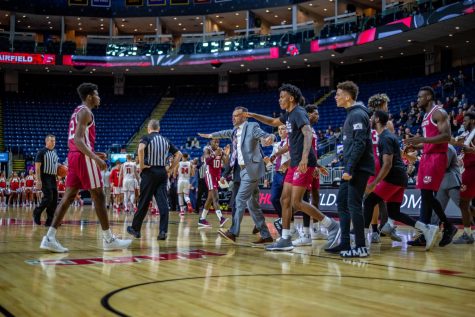
After sending three of his players to UMass to play Division I basketball, Bergeron was hired not long after his players were signed. He first met coach Matt McCall when he was the head coach at Commonwealth Academy, and immediately the two started talking basketball. Bergeron was impressed with everything about McCall, especially his energy around the game.
Bergeron tells McCall every day that he will sit next to him for the next 20 years if he can stay an assistant coach. His love for UMass is real. As a kid from Springfield making his way through the ranks of high school and prep basketball, the circle is nearly complete.
UMass is his spot, and it has been the dream for Bergeron since he was a little kid.
“I want to be at UMass,” Bergeron said. “I will do whatever it takes to stick here, but [McCall] and Ryan Bamford know my dream is to one day be the coach of UMass. I tell him, listen if we can get you hired by the Miami Heat or something like that, then I’d love to have the job.”
Bergeron’s focus now is on getting the UMass basketball program back to its glory days. UMass hasn’t reached the NCAA tournament since the 2013-2014 season, and just once since 1997-1998. Bergeron isn’t the only one tasked with guiding the team back to where it once was, but he sure wants to be a contributor in the success of the team.
“NCAA tournament,” he said repeatedly. That’s the goal. “No doubt about it, back-to-back-to-back.”
Bergeron knows Calipari, through coaching Five Star and some of his other stops. Calipari has left a decades-long mark on the program after guiding UMass to five straight NCAA tournament appearances.
For Bergeron, 20 years down the road, he wants people to be talking about the McCall era of basketball.
Success won’t be instant, and that’s something Bergeron knows well. He’s eager to see just where this team will end up. One thing’s for sure: 25 miles north of Springfield, the Bergeron contingent in the Mullins crowd will be a big one.
“The only negative and tricky thing with me working at UMass is we are going to have to figure out some scenarios,” Bergeron said.
“Because I am going to have a great deal of family coming to these games.”
Frederick Hanna III can be reached at [email protected], and followed on Twitter @FrederickHIII.
